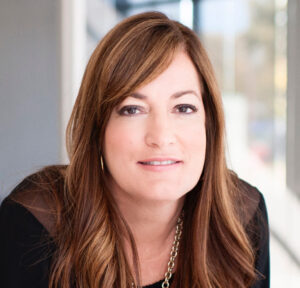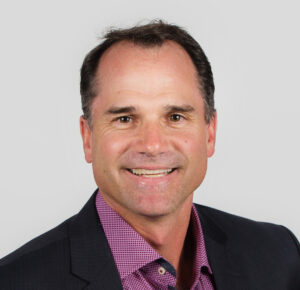Writer: Joshua Andino
2 min read February 2022— Technology has moved to center stage over the course of the pandemic to become an integral part of every business. From data analytics and AI to sustainability and changing consumer preferences, the uses for tech are becoming ubiquitous. But there is also a need to understand and successfully deploy technology to avoid incurring the same technical debt that made the initial virtual pivot a challenge for a number of organizations just two years ago. As technology use becomes the norm rather than the exception, often to accommodate new consumer demands or in the case of education, new program offerings, here are the thoughts of leaders across the Twin Cities who spoke to Invest:. They will also be speaking at the Invest: Minneapolis-St. Paul 2022 launch conference later next week.
 Lili Hall, CEO, KNOCK, Inc.
Lili Hall, CEO, KNOCK, Inc.
What is an example of changes that are coming in terms of consumer lifestyles?
Consumers are continually paying more attention to sustainability. It’s helping businesses think more responsibly. I’m reminded of a recent allergy medication purchase. It’s a bottle of 30 capsules that could’ve held 200. So, it gives me pause to think why this bottle needed to be that large. This is but one small example of smart consumer questioning. Fortunately, we’re seeing a lot of clients making changes in packaging to accommodate consumer behavior expectations.
 Jamie Woell, Office Managing Partner – Minneapolis, RSM
Jamie Woell, Office Managing Partner – Minneapolis, RSM
What advice do you provide regarding technological solutions?
Some of our clients were able to pivot to a fully remote environment quickly and did that without much concern. For others, their infrastructure was lacking, so there has been an opportunity there. This has also been a wake-up call for the senior leadership of our clients in regard to investing for the future. The traditional technology ERP solutions still exist but there is also a need to work with our clients on how they can make it easier for their talent to work with each other on a hybrid basis. Technology plays a key part in the retention and attraction of talent.
The second priority is how they work with their customers and prospective customers in regard to delivering their service or product in a way that differentiates themselves from others, especially in light of the current supply chain issues.
 Ron Konezny, President & CEO, Digi International
Ron Konezny, President & CEO, Digi International
Which technological developments will revolutionize the supply chain industry?
Technology will be a big driver in revolutionizing the supply chain industry. A key requirement is the ability of the supply chain to monitor its assets or inventory in transit so they understand where things are and what condition they are in at all times. This is where IoT technology is a game-changer. Wireless communication devices like sensors and transmitters only need to send data periodically. The data can be collected cost-effectively and improve the effectiveness of the industry.
 Adam Elliott, Founder & President, ID Insight
Adam Elliott, Founder & President, ID Insight
How has the cybersecurity market grown, considering how many people were forced to go online during the past year?
It is changing as we speak. The first online-only banks started in the late 1990’s and between then and 2017, the percentage of online new account openings in comparison to those opened at bank branches grew from 0 to 20%. It’s now about 50%. The pandemic has accelerated change so things that were going to happen are now happening.
Phishing, ransomware and different cyberthreats are still occurring but one that keeps me up at night is credential stuffing. With database breaches, personal information like emails, usernames and passwords are compromised. Criminals can go to the dark web and find open-source software to load thousands of breached username and passwords. They can then direct the software to hit specific banks to test these credentials. The successful logins are identified and they are off to the races. The way credential stuffing manifests itself, we see increased activity in terms of the coordinated attacks. Historically, fraudsters tend to exploit one specific fraud type such as opening up new accounts fraudulently. Another group may be focused on account takeover. However, we are now finding that the same criminal organization is pursuing multiple fraud schemes. That is worrisome because the same people are doing both things and creating a hacking ecosystem.
 Dr. Joyce Ester, President, Normandale Community College
Dr. Joyce Ester, President, Normandale Community College
Where have you seen the most growth or changes in demand for your programs?
As industries start to increase access by using associate degrees and credentials as entry points to their fields, we expect to see an increase in our business programs, or computer technology, for which students don’t necessarily need a baccalaureate credential to enter the workforce. As a believer in education, I hope that those programs also support them in continuing to advance their careers or degree attainment.
The other element is pivoting higher education in general. Sometimes we take a long time to do things, but COVID made us make decisions quickly and it taught us that we do not always need a lengthy process to solve important issues. In higher education, you will see more people thinking outside the box. I also think that higher education operates as a business since we need to be good stewards of our resources. Since COVID eliminated geographical restraints for students to either come here or go to other institutions, it will require us to think more from a business perspective about how we interact with our students because competition will be greater.
To learn more, register for the Invest: Minneapolis-St. Paul 2022 annual launch conference here.

